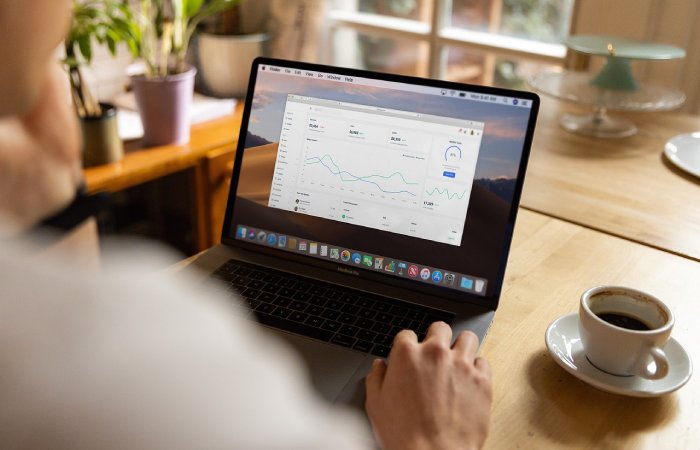In the fast world of digital marketing, remote work brings both advantages and obstacles for marketers. The chance to work from anywhere is great, but it means finding new ways and tools to keep up work quality and speed.
Remote marketers need to be prepared with the right tools at hand, to not just meet their goals, but to go beyond them. Whether checking performance, looking at data, or working with others, the tools and methods marketers pick are extremely important.
Let’s look into some of the best ways to boost the work of remote marketers, helping them do well in a digital space.
Remote Tracking Software Benefits
According to statistics, 60% of businesses use remote monitoring software for their employees. Remote marketers shouldn’t feel threatened by these tools. On the contrary, they should take it as an advantage. Business owners who invest in remote monitoring tools have better insight into their employees’ work, productivity, and struggles. This way, they can communicate with their team on time, preventing small obstacles from becoming really big issues that hold back business processes.
As a remote marketer, a remote work tracking tool will keep you in check, you’ll know you’re being monitored and this can help you stay focused and motivated to meet your goals. Rather than seeing it as a limitation, you can view it as a tool for personal growth, helping you track your progress and identify areas for improvement. Additionally, remote monitoring tools offer transparency, creating a more open line of communication between you and your employer, as they can better understand the challenges you face and offer support when needed. Embracing these tools can lead to greater accountability, improved performance, and stronger collaboration within the team, ultimately benefiting both you and the business.
The Importance of Analytics for Decision-Making
In marketing, making choices based on data is vital, and remote marketers are no different. The ability to study campaigns and get useful insights from data is key to doing better. Analytics tools save the day, giving marketers the skills to measure how effective their plans are and change them if needed. Without proper analytics, remote marketers may end up lost, shooting in the dark.
Marketers should use great analytics tools like Google Analytics, SEMrush, or HubSpot to watch campaign success, audience actions, and conversion rates. These platforms offer wide reports, allowing marketers to know what methods are effective and what needs changes. Whether checking site traffic, social media actions, or email results, having these insights helps marketers make smart choices.
Beyond using analytics tools, marketers can work on extending their knowledge using outside sources. For example, reading good analytics books can help marketers sharpen their data skills and learn to read data better. Books on analytics give helpful info about major ideas and trends in data study, giving remote marketers the chance to adopt a more strategic approach. With this insight, they can create better campaigns, raise ROI, and lead the field.
Embrace Collaborative Tools for Team Efficiency
Working well with others is key to any marketing team’s success, and for remote marketers, it’s even more critical. Not being able to walk over and chat with a colleague, teams must use digital tools for communication and teamwork. Collaborative tools, like Google Workspace, Zoom, and Slack, now form the backbone for remote marketing teams.
These tools provide various features that make sharing ideas, editing documents in real time, and hosting online meetings easy. For instance, Google Docs lets team members work together on one document, offering real-time edits and notes. Slack acts as a chat center where teams can form channels for different projects, organize discussions, and share necessary info. Video platforms like Zoom or Microsoft Teams let remote marketers hold regular meetings, idea sessions, or client talks without worrying about distance.
Furthermore, collaboration tools lessen the feeling of isolation often felt in remote work. By giving chances for prompt chatting and teamwork, these platforms promote a sense of connection and togetherness, which leads to better output and higher job delight among remote marketers.

Utilize Time Management Tools for Maximum Productivity
Remote marketers often juggle many tasks and projects, making time management key. Without the old-style office setup, marketers must learn to manage their time well to avoid burning out and keep deadlines. Time management tools like Toggl, RescueTime, and Clockify help remote marketers track their hours and increase productivity.
These tools let marketers log the time used on each task, providing insight into how time is being spent. By looking at this data, remote marketers can spot areas wasting time and focus on more important jobs. For example, if a marketer sees they spend too much time on admin work, they can find ways to automate or transfer these tasks, freeing time for crucial activities like content creation or campaign handling.
Also, time management tools help remote marketers set possible targets for each day, stopping them from over-promising and feeling stressed. These platforms often have built-in notes and scheduling features, ensuring tasks are done punctually. By mastering time handling, remote marketers can keep a stable workflow, reduce stress, and always deliver great results.
Leverage Automation Tools for Streamlined Marketing
Automation is a big change in marketing, letting remote marketers get more done in less time. By automating repeat actions like email campaigns, social media updates, and lead care, marketers can focus on plans and creative tasks. Tools like Mailchimp, Hootsuite, and Zapier provide strong automation that can greatly boost a marketer’s efficiency.
For instance, email marketing tools like Mailchimp let remote marketers set up automated email sequences triggered by certain actions, like a customer signing up for a newsletter. Social media handlers like Hootsuite let marketers plan posts ahead, ensuring a regular presence without daily updates. Zapier links many apps and automates tasks, such as sending follow-up emails or creating assignments in project tools based on certain triggers.
By using automation tools, remote marketers can lessen the manual work, cut down on mistakes, and ensure their campaigns run smoothly even when they aren’t managing them actively. This not only raises total output but also frees time for more strategic tasks that fuel business growth.
Bottom Line
In today’s remote work scene, marketers must pick the right tools and methods to stay competitive and productive. By investing in remote tracking software, using analytics tools, embracing teamwork platforms, managing time well, and using automation, remote marketers can boost their performance. The online environment keeps changing, and those who keep up with remote work needs while using top tech will excel in reaching their marketing goals.

